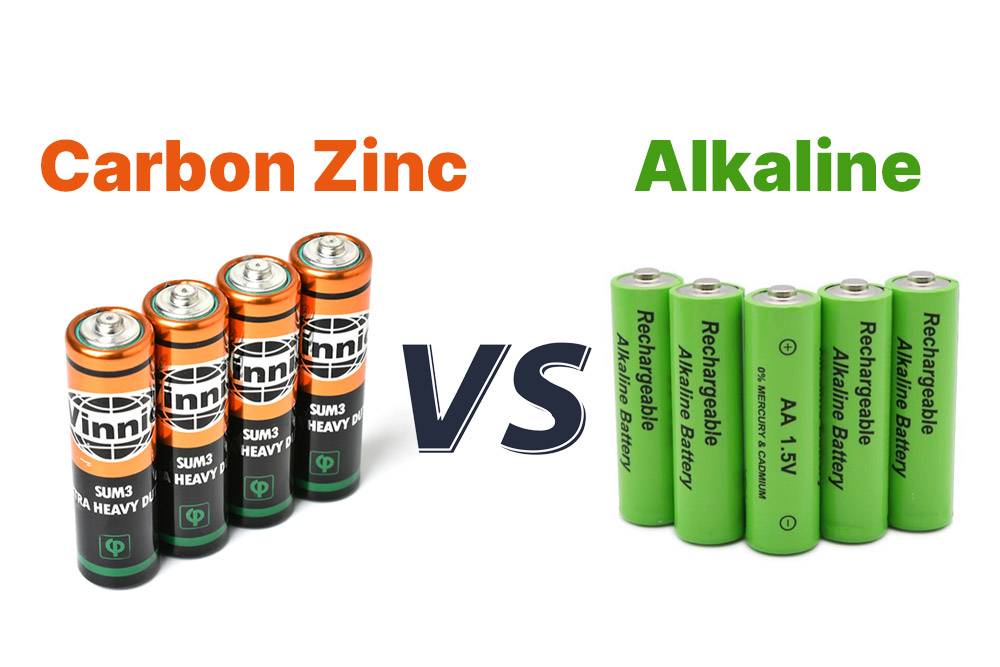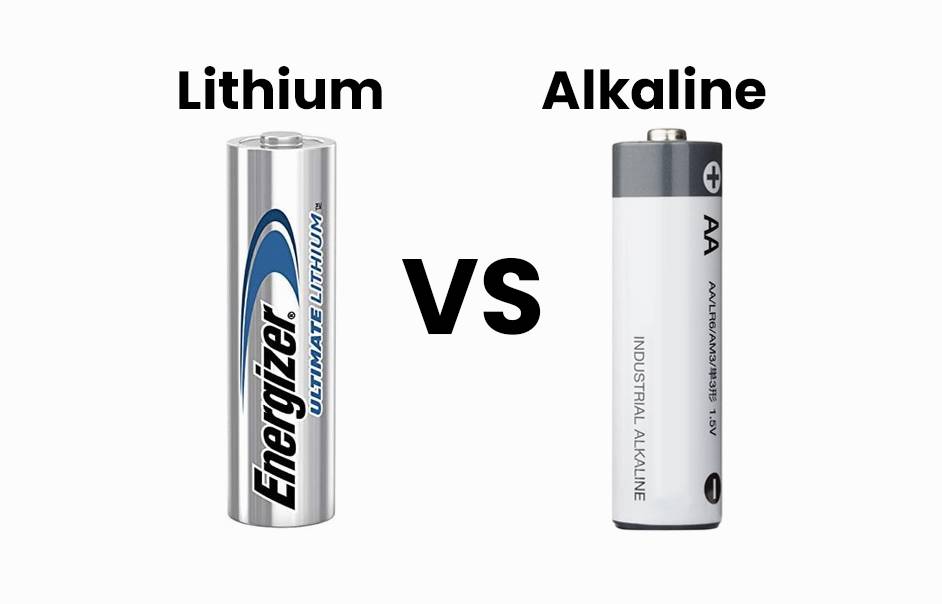When choosing between carbon zinc and alkaline batteries, consider your device’s needs. Carbon zinc batteries are affordable and suitable for low-drain gadgets, while alkaline batteries offer higher energy density for high-drain devices. Alkaline batteries generally have a longer shelf life and better performance. Choose accordingly.
What Are Carbon Zinc Batteries, And What Are Their Uses?
Carbon zinc batteries, also called zinc-carbon batteries, are disposable and cheap. They use a carbon rod and a zinc casing. Common in remote controls and flashlights, they’re simple and practical for everyday gadgets. They work by a simple chemical reaction. Though not long-lasting, they’re great for basic household needs without spending much.
What Are Alkaline Batteries, And What Are Their Uses?
Alkaline batteries are common disposable batteries used in everyday devices. They contain potassium hydroxide electrolyte, offering longer shelf life and steady voltage. Versatile in sizes from AAA to D, they power items like remote controls and toys reliably. Their convenience and reliability make them a go-to choice for many gadgets.
Alkaline batteries, with potassium hydroxide as electrolyte, offer reliable power for devices like remotes and toys. Versatile in sizes, from AAA to D, they suit various needs. Trusted for consistent energy output, they’re preferred for convenience. Their chemical composition ensures steady voltage, enhancing performance and shelf life. Alkaline batteries are indispensable in households and workplaces. Their reliability and ease of use make them a go-to choice for powering everyday devices with confidence.
Zinc Batteries vs Alkaline Batteries in Composition and Chemistry
Differentiating zinc and alkaline batteries: Zinc batteries, affordable and for low-drain devices; Alkaline batteries, pricier but longer-lasting, ideal for high-drain gadgets like cameras. Choose based on device needs!
Let’s break down the comparison between zinc batteries and alkaline batteries in simple terms:
- Zinc Batteries:
- Affordable choice for devices with low power needs like remotes and clocks.
- They use a zinc anode and a manganese dioxide cathode with a zinc chloride electrolyte.
- However, they may not last as long and can lose their charge quicker than alkaline batteries.
- Alkaline Batteries:
- A bit more expensive but offer better performance and longer life.
- They also use a zinc anode and a manganese dioxide cathode, but the electrolyte is potassium hydroxide.
- Ideal for high-drain gadgets like digital cameras and toys due to their higher capacity and longer-lasting power.
In summary, consider your device’s needs and your budget when choosing between these battery types!
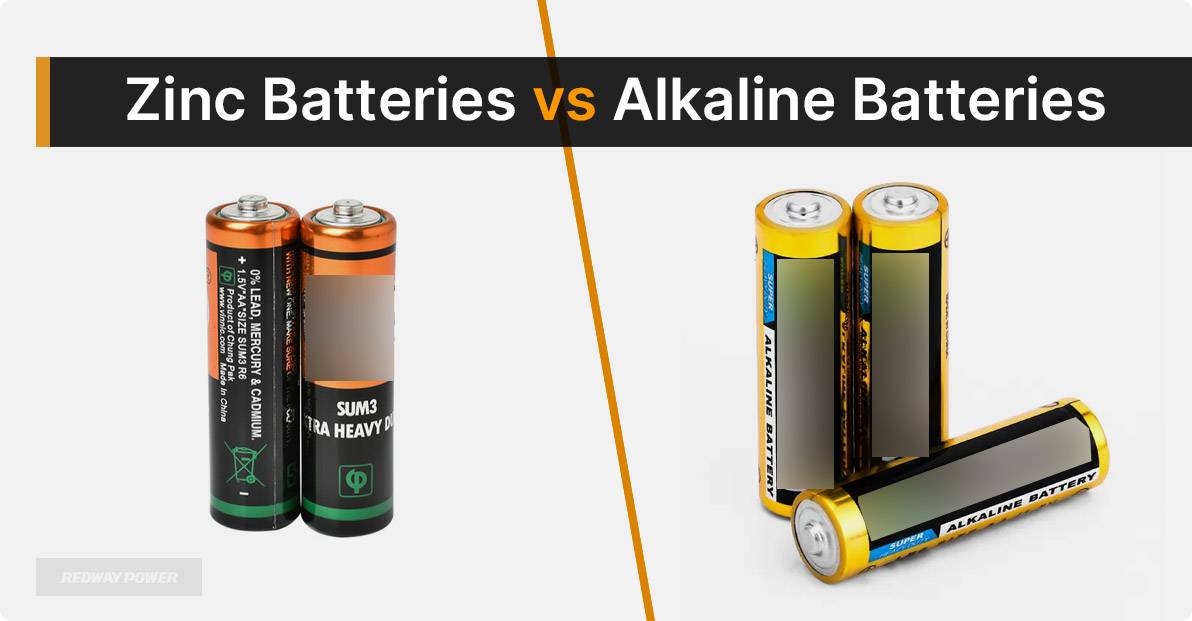
Zinc Chloride Battery vs Alkaline Battery
Zinc chloride batteries contain a zinc anode and manganese dioxide cathode with a zinc chloride solution. Alkaline batteries, on the other hand, use potassium hydroxide as electrolyte. Alkaline batteries offer longer lifespan and higher energy density, suitable for high-drain devices like digital cameras. Zinc chloride batteries are cheaper but better for low-drain devices.
Let’s simplify the comparison:
1. Zinc Chloride Batteries:
- Composition: Zinc chloride batteries consist of a zinc anode and manganese dioxide cathode immersed in a zinc chloride solution.
- Advantages: They are generally more affordable and work well for devices with low power needs.
- Disadvantages: However, they have a shorter lifespan and may not be suitable for high-energy gadgets like digital cameras.
2. Alkaline Batteries:
- Composition: Alkaline batteries share a similar structure but use potassium hydroxide as their electrolyte.
- Advantages: These batteries offer a longer lifespan and higher energy density, making them ideal for power-hungry devices.
- Applications: Commonly found in digital cameras, toys, and other electronic devices requiring sustained power.
Choosing between zinc chloride and alkaline batteries depends on your device’s power requirements. While zinc chloride batteries are budget-friendly, alkaline batteries offer better performance and longevity for high-drain gadgets.
Are Carbon Zinc Batteries The Same As Lithium Batteries?
Zinc chloride batteries are cheaper but drain faster, ideal for low-power gadgets. Alkaline batteries cost more but last longer, suitable for high-drain devices like cameras. Choose based on needs: budget or performance.
Here’s what you need to know:
1. Zinc Chloride Batteries:
- Composition: Zinc chloride batteries have a mix of zinc and manganese dioxide. They contain a liquid solution called zinc chloride.
- Advantages: They are cheaper and work well for devices that don’t use much power, like remote controls.
- Disadvantages: These batteries drain faster and might not last long if used in high-energy gadgets.
2. Alkaline Batteries:
- Composition: Alkaline batteries are similar but use a different liquid called potassium hydroxide. They last longer and have more power.
- Advantages: They are pricier but worth it for high-energy devices like cameras or toys.
- Applications: People often choose alkaline batteries for electronics that need a lot of power for a long time.
Consider what you need your batteries for. If it’s something like a TV remote, zinc chloride batteries might be fine. But for cameras or toys, you might want to go with alkaline ones.
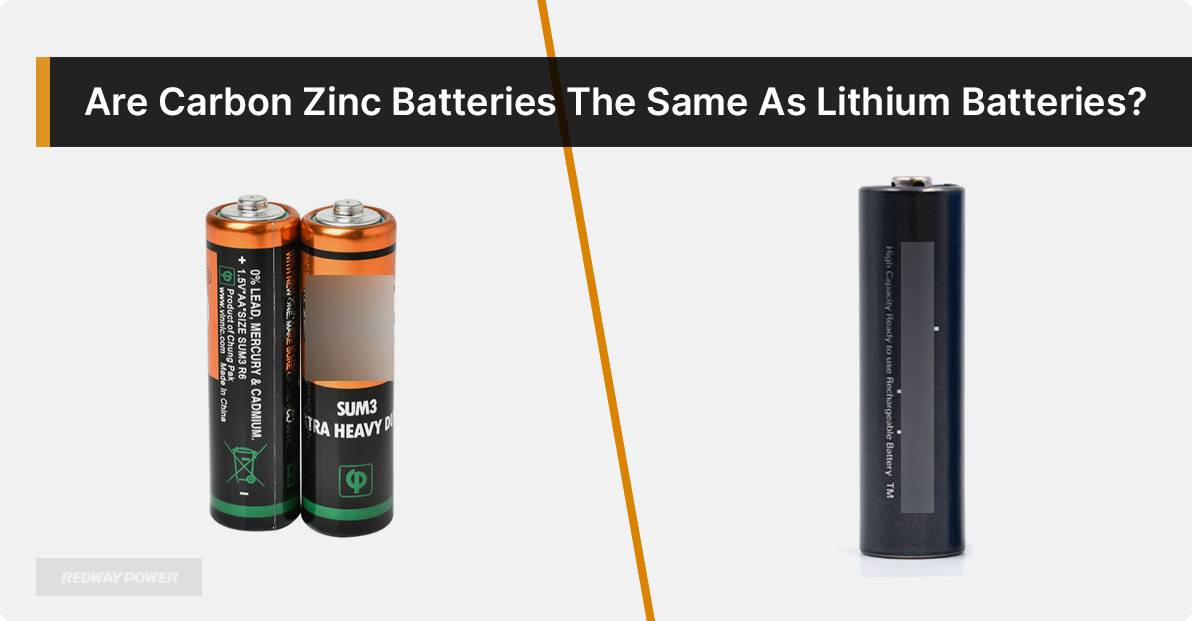
Are Carbon Zinc Batteries The Same As Alkaline Batteries?
No, Carbon Zinc batteries and Alkaline batteries are quite different. Carbon Zinc uses acidic ammonium chloride, while Alkaline batteries rely on basic potassium hydroxide. Alkaline batteries have higher capacity and better adaptability to high current discharge. They also last longer and are safer due to reduced leakage risk.
Let’s break down the difference between Carbon Zinc batteries and Alkaline batteries in simpler terms:
- Chemical Makeup:
- Carbon Zinc batteries: They contain an acid called ammonium chloride.
- Alkaline batteries: These batteries use a base called potassium hydroxide.
- Performance:
- Carbon Zinc batteries: They have lower capacity and power output.
- Alkaline batteries: These batteries offer higher capacity and better performance, especially in high-drain devices.
- Safety and Lifespan:
- Carbon Zinc batteries: Prone to leakage due to their acidic nature and have a shorter lifespan.
- Alkaline batteries: Safer and longer-lasting due to better construction and chemical composition.
Understanding these differences helps in choosing the right battery for different devices and ensures safer and more efficient power usage.
Do Carbon Zinc Batteries Last Longer Than Alkaline Batteries?
Yes. When comparing carbon zinc and alkaline batteries, it’s essential to note their differences. Carbon zinc batteries are cheaper and good for devices like remote controls, while alkaline batteries are better for high-drain devices like digital cameras. Alkaline batteries last longer due to their higher energy density and are more tolerant of high-current discharge. So, if you need longer-lasting power, go for alkaline batteries!
Let’s break it down in simple terms:
- Understanding the Differences: Carbon zinc and alkaline batteries have different characteristics. Carbon zinc batteries are cheaper and work well for simple gadgets like remote controls, while alkaline batteries are better for devices like digital cameras that need more power.
- Performance Comparison: Alkaline batteries outlast carbon zinc ones because they have a higher energy density. They can handle heavy use better and last longer, making them a better choice for demanding devices.
- Making the Right Choice: If you need batteries for something that uses a lot of power, like a camera or a toy, go for alkaline batteries. They might cost a bit more, but they’ll last longer and give you better performance in the long run.
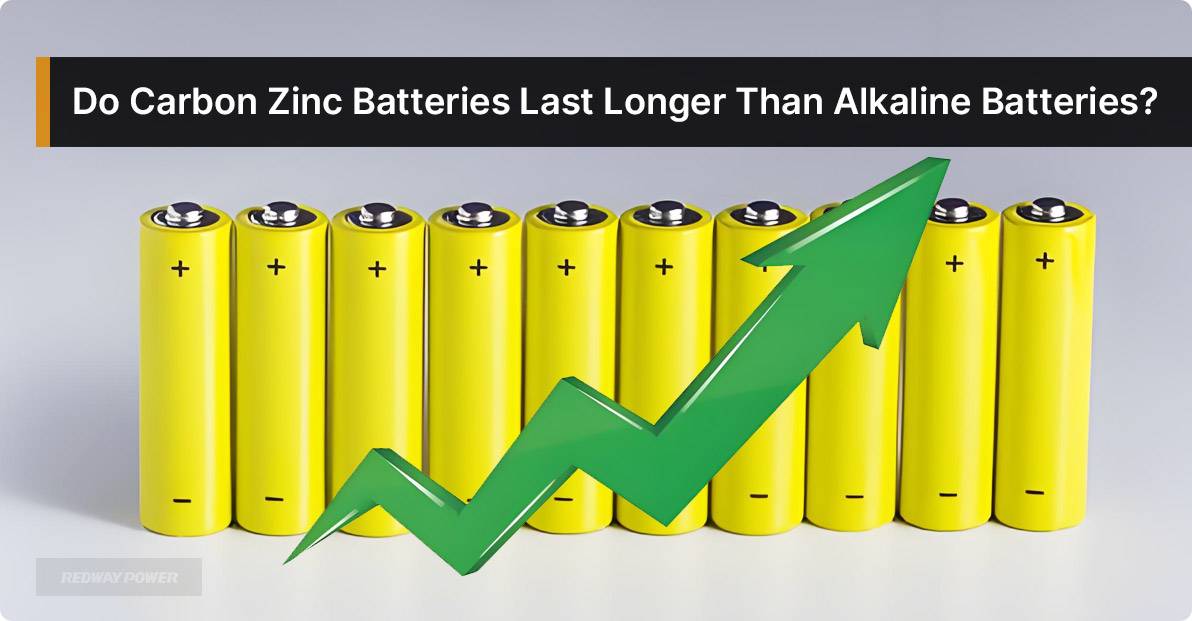
FAQs
How to Identify Alkaline and Zinc-Carbon by Touch
How to Distinguish Batteries by Weight
How to Recognize Batteries by Logo
Why Alkaline Batteries Are Inappropriate for Watches
Why Correct Battery Type Is Essential
What Are Common Uses for Alkaline and Zinc-Carbon Batteries
How Alkaline Batteries Operate
Alkaline batteries operate by using an alkaline electrolyte instead of an acidic one. They have a cathode made of manganese dioxide, an anode made of zinc, and an alkaline electrolyte, typically potassium hydroxide. When a device is turned on, a chemical reaction occurs between the electrolyte and the cathode, generating an electrical current that powers the device. Alkaline batteries are known for their higher energy density, longer shelf life, and reliable performance. They are widely used in various devices such as remote controls, flashlights, toys, and portable electronics.
What Advantages Alkaline Batteries Provide
Alkaline batteries provide several advantages. They have a higher energy density, meaning they can store a significant amount of energy in a small package. This makes them ideal for devices that require a lot of power, such as digital cameras and portable audio players. Alkaline batteries are also safe to handle and use, as they do not contain toxic metals and are recyclable. They have a longer lifespan compared to other batteries, lasting up to seven years while being unused. These advantages make alkaline batteries a popular and reliable choice for various applications.

